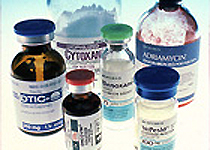
Treating cancer often involves trade-offs, as many anticancer drugs cause adverse effects such as fatigue and diarrhea, or even more severe and potentially fatal events like bleeding or blockages in major blood vessels. New anticancer drugs are rigorously tested in clinical trials before being approved; however, clinical trials can under-report the expected rate of adverse events because recruited patients tend to be healthier with fewer complications and because the timeframe of a clinical trial can miss toxicity that does not manifest until long after the treatment course.
PM Senior Scientist Dr. Ian Tannock and colleagues analyzed the results of 41 studies that investigated 19 new anticancer drugs to quantify the cost of adverse events associated with approved therapies. They found that new drugs with specific molecular targets resulted in fewer adverse events than existing treatments. Conversely, new drugs that did not have specific molecular targets had increased rates of adverse events that led to $140 more in hospital costs per patient, which adds to the already higher price of the new drugs themselves.
"These results suggest that the development of more personalized and targeted cancer therapies should be encouraged." concludes Dr. Tannock. "Furthermore, it is important to monitor and report adverse events after a drug moves into routine practice in order to identify delayed toxicities."
This work was supported by The Princess Margaret Cancer Foundation.
Risk of incremental toxicities and associated costs of new anticancer drugs: a meta-analysis. Niraula S, Amir E, Vera-Badillo F, Seruga B, Ocana A, Tannock IF. Journal of Clinical Oncology. 2014 Sep 29. [Pubmed abstract]





Comments